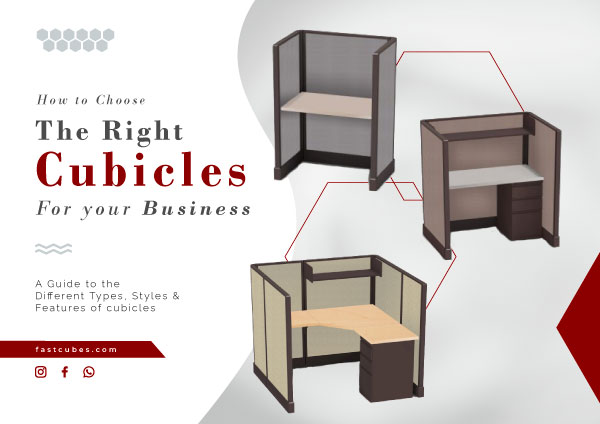The Psychology of Cubicles: How Your Workspace Affects Your Productivity and Mood
Cubicles have long been a staple of the modern office environment, but have you ever stopped to consider how your workspace might be affecting your productivity and mood?
At first glance, the psychological effects of cubicles might not seem like a big deal. After all, they provide a space for you to work in relative privacy and quiet, and they help to keep the office organized by dividing up the space into individual work areas.
But recent research has shown that the cubicle environment can have a significant impact on your psychological well-being and productivity.
One study found that employees in open-plan offices, which often use cubicles, reported higher levels of distractions and interruptions, as well as lower levels of concentration and motivation. This can lead to decreased productivity and increased stress levels.

Another study found that employees who have control over their workspace, such as the ability to personalize their cubicle, reported higher job satisfaction and well-being. In contrast, employees who had no control over their workspace reported lower job satisfaction and well-being.
The reason for this is that our physical environment has a direct impact on our mental state. A cluttered, chaotic workspace can cause us to feel overwhelmed and stressed, while a clean and organized workspace can help us to feel calm and focused.

In addition to affecting our productivity and mood, the cubicle environment can also have an impact on our social interactions. Cubicles can create a sense of isolation and disconnection from our co-workers, leading to decreased collaboration and communication.
To counteract these negative effects, it’s important to create a workspace that is conducive to productivity and well-being. This might mean personalizing your cubicle with photos and plants, making sure that your workspace is clean and organized, and taking regular breaks to stretch and move around.

It’s also important to make an effort to connect with your co-workers and build a sense of community in the office. This can help to combat the isolation that can be caused by working in a cubicle environment.
In conclusion, the psychology of cubicles is an important consideration in the modern office environment. By creating a workspace that promotes productivity and well-being, and by fostering a sense of connection with our co-workers, we can help to create a positive and effective work environment.



